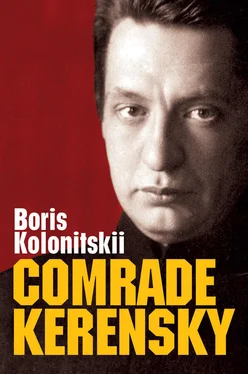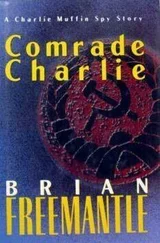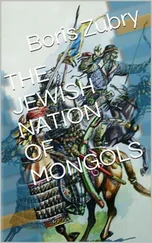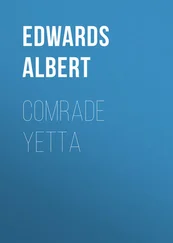Kerensky’s involvement in promoting the cult of champions of freedom did not, of itself, stand out as anything exceptional, but his biography, his political position and authority, and the resources he controlled imbued his actions with a special significance and importance. Compared with Kolchak and others active in the political process, the ‘revolutionary minister’ venerated the champions of freedom more enthusiastically and more sincerely. From early youth he had been a bearer of the radical intelligentsia’s political culture; the cult of champions of freedom was extremely important for him personally, for his friends and family, and he kept in his apartment a relic of the mutiny led by Lieutenant Schmidt. 220The rhetoric and rituals of sanctification of the champions of freedom were well familiar to Kerensky and emotionally important to him.
The version of history the revolutionary minister proposed to the new Russia did also have a place in it for certain tsars. On 5 March 1917 he ceremonially presented to the First Department of the Senate the acts of abdication of the throne of Nicholas II and Grand Duke Mikhail Alexandrovich. In the process, Kerensky had words of appreciation for this ‘institution created by the genius of Peter the Great to protect the laws and the rule of law.’ That is unlikely to have gone down well with all who were opposed to the monarchy, but it is significant that Tan, a veteran of the revolutionary movement, quoted him, remarking only: ‘It is instructive to note this tribute from a man of culture to the genius of Peter the Great, who had been such a fierce and mighty revolutionary on the throne. Unlike others, Kerensky could see clearly the difference between Peter the Great and Nikolai Romanov, his pathetic successor.’ 221
Kerensky’s respect for Peter the Great was manifested in other ways. A number of warships which bore the names of monarchs began to be renamed. The Central Committee of the Baltic Fleet suggested changing the name of the Peter the Great , a training vessel, to The Republic . Kerensky thought, however, that it should retain its historical name. Many sailors evidently also thought it appropriate to let the ‘crowned revolutionary’ keep his place in the pantheon of great predecessors of the new Russia. There were three ships in the navy named in honour of Peter I, and they all kept their original names despite the revolution. 222
It was, however, the cult of heroes of the revolutionary movement which had a special role in the version of the past which Kerensky was proposing to Russia. There was a clear link between the sources of his own power and his practical involvement in the revolution’s politics of memory: in the process of promoting a sacrosanct cult of champions of freedom, he was simultaneously reinforcing his own authority.
The Decembrists had an important place in Kerensky’s version of Russian history. In the stressful climate of the revolution, he found time to discuss the project of a memorial to the first generation of champions of freedom. He discussed the idea of erecting a monument to the Decembrists with Grand Duke Nikolai Mikhailovich, a Freemason with specialist knowledge of the era of Alexander I. This scion of the Romanov dynasty declared himself willing to donate a substantial sum of money to the project. 223About a month later Kerensky sent a letter to the main newspaper of the Socialist Revolutionary Party, offering his opinion on where the monument might best be sited. 224
Kerensky’s veneration of the memory of the Decembrists was evidently sincere, but, at the same time, commemorating officers who had challenged the autocracy was an important political gesture in 1917. Reminding rank-and-file soldiers of this particular cohort of champions of freedom could help to ease tensions between them and their officers, and this was a particularly sensitive issue in the early days of the February Revolution. On 14 March, during a meeting with the writers Dmitry Merezhkovsky and Zinaida Gippius, Kerensky asked Merezhkovsky, who was working on his novel The Decembrists , to write a pamphlet reminding soldiers of the feat of those first revolutionary officers, with the aim of reducing friction in the army. Merezhkovsky’s pamphlet, The Firstborn of Freedom , was published in short order. (It was actually written by Gippius: in the earlier version of her diary she writes that she is working on The Decembrists ‘for Kerensky’.) The first version of the text, published in the journal Niva , was dedicated to ‘A. F. Kerensky, who continues the Decembrists’ cause.’ 225Kerensky’s revolutionary work was presented as the culmination of the struggle begun by the ‘firstborn of freedom’, of whose memory he was the guardian. The revolutionary minister took to recalling the firstborn of freedom in speeches addressed to soldiers. 226
The Decembrist theme figures in Kerensky’s speeches particularly often after he was appointed head of the Ministry of War. To some of the guards’ regiments he pointed out their historical legacy and ‘drew especial attention to the guards’ regiments from which the Decembrists had emerged.’ 227
The minister of war returned to this topic at the All-Russia Congress of Officers’ Deputies in Petrograd. He urged the deputies to think of themselves as the heirs of the Decembrists’ cause and to apply the memory of them to strengthen the morale of the revolution’s armed forces. ‘I am fully confident that a tradition of the Russian army which dates from the times of the Decembrists will be raised by the officer corps to the level required.’ His speech was enthusiastically received. 228
Speaking shortly afterwards, on 17 May in Sevastopol, Kerensky reminded his listeners of the ‘fighting and revolutionary traditions’ of the Black Sea Fleet: ‘The cherished memory of Lieutenant Schmidt is closest of all to you, and I am certain, comrades, that you will fulfil your duty to your country to the end.’ In Sevastopol, Kerensky was trying to resolve conflicts which had flared up between Kolchak and the fleet’s elected organizations, between the naval command and the ordinary sailors. Referring to the memory of a revolutionary officer was intended to contribute to resolving urgent political problems. Kerensky was seeking to reinforce Kolchak’s authority, mentioning the role of the navy’s commander in stabilizing the new order. He reminded the sailors of their historic responsibility, of their duty to remain true to the memory of the champions of freedom and carry their mission forward. ‘We cannot recklessly fritter away the great legacy won by the blood and toil of many generations of the Russian intelligentsia from the Decembrists onwards. By good fortune we have become the first to enjoy great freedom, and we must protect it and pass it on to our descendants.’ 229
The cult of champions of freedom, promoted by different political players in 1917, would have been unimaginable without glorifying the surviving veterans of the movement. Members of the various groups celebrated the old revolutionaries who were ideologically closest to them, ‘living monuments’ to the struggle who, by their support, could legitimize the current leaders. 230Of particular importance was the celebrating of Yekaterina Breshko-Breshkovskaya, who had joined the revolutionary ranks in the 1870s and had spent more than three decades in prison and exile. The Socialist Revolutionary Party of which she was a member established a personal cult of the ‘Grandmother of the Russian Revolution’. Portraits and biographies were printed, numerous resolutions were addressed to her, and when she spoke in public she was invariably the centre of attention.
Breshkovskaya was not celebrated as a leader of the party, but her authority as a heroine and martyr who had lived her life by the precepts of the party’s saints was assiduously promoted by the Socialist Revolutionaries. It served to strengthen the party’s influence and was a tool in the power struggle between sundry factions of the party. Breshkovskaya was one of the most popular figures of the February Revolution. As we have seen, a film was made about her life, and groups of soldiers and students declared themselves the respectful grandchildren of the beloved grandmother. Socialist Revolutionary propaganda urged their supporters to continue the legacy of the aged revolutionary. 231
Читать дальше









